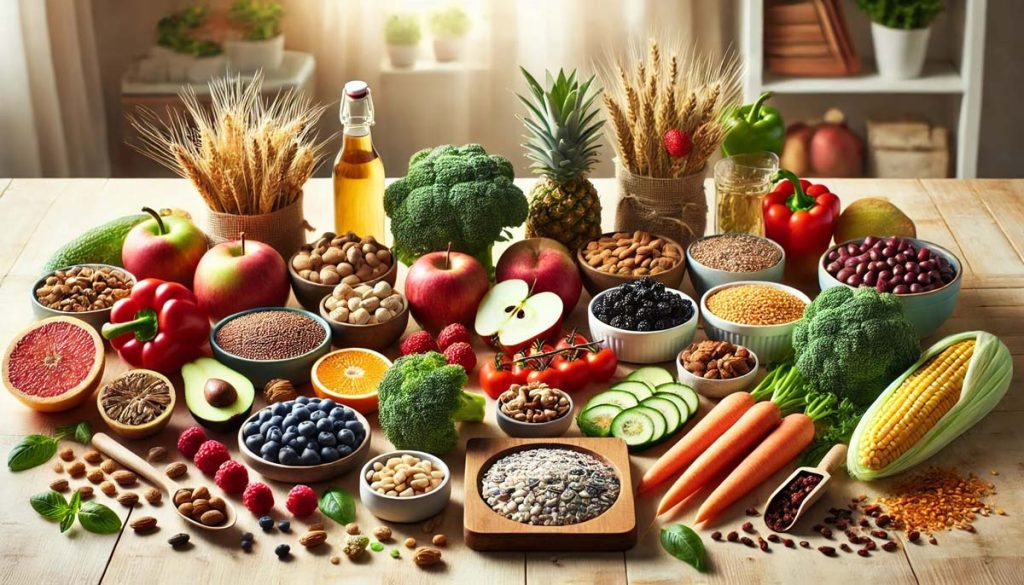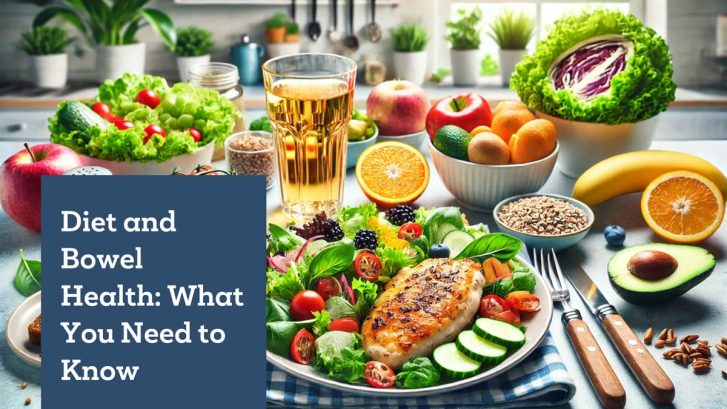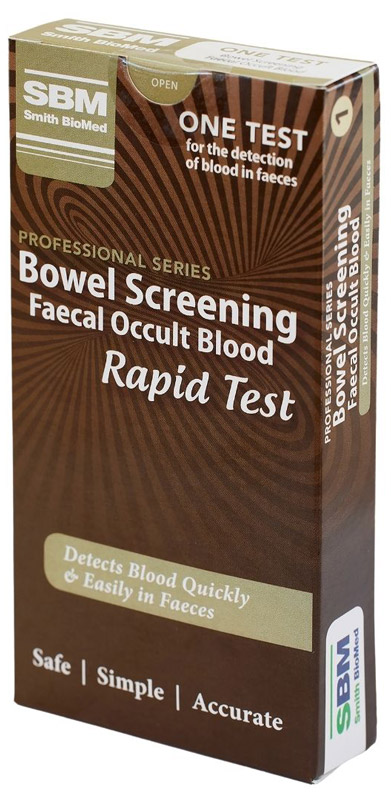Maintaining a healthy bowel is essential for overall well-being. Our digestive system is complex, and influenced by various factors, including our diet, lifestyle, and genetics. Bowel health isn’t just about avoiding discomfort or managing regularity; it can have implications for our immune system, mental health, and even our risk for serious conditions like bowel cancer.
In this comprehensive article, we explore how diet plays a crucial role in bowel health, the importance of regular screenings to help detect potential issues early, and how you can access at-home screening tests.
Understanding the Connection Between Diet and Bowel Health
Our diet has a significant impact on the health of our bowels, including the frequency, consistency, and ease of bowel movements. A diet rich in fibre, diverse in nutrients, and low in processed foods can support a healthy gut, prevent inflammation, and reduce the risk of bowel disease.
Let’s break down how specific dietary components impact bowel health:
Fibre: The Foundation of Bowel Health
- Fibre is often the first nutrient people think of when discussing bowel health. It adds bulk to stools, helping to move food through the digestive system more efficiently. This process prevents constipation, promotes regularity, and reduces the risk of diverticular disease.
- Fibre comes in two types: soluble and insoluble. Soluble fibre, found in foods like oats, apples, and carrots, dissolves in water to form a gel-like substance, slowing digestion and helping to absorb cholesterol. Insoluble fibre, in foods like whole grains and vegetables, doesn’t dissolve in water but adds bulk to the stool and promotes bowel movement regularity.

Probiotics and Prebiotics: Nurturing Gut Bacteria
- The gut is home to trillions of bacteria that play a significant role in digestion, immunity, and even mood. Probiotics are beneficial bacteria that you can consume through fermented foods like yoghurt, sauerkraut, and kimchi. These “good” bacteria support a balanced microbiome, which can help improve digestion and reduce bloating.
- Prebiotics, found in foods like bananas, onions, and garlic, feed the good bacteria in your gut, allowing them to thrive. Including both prebiotics and probiotics in your diet supports a healthier gut environment, leading to better digestion and bowel health.
Hydration: Keeping Things Moving
- Water is essential for good digestion and bowel health. It helps soften stools, making them easier to pass and preventing constipation. When you don’t drink enough water, the large intestine absorbs water from the waste in the colon, resulting in hard, dry stools that are difficult to pass.
- Aim to drink at least 8-10 cups of water per day, especially if your diet is high in fibre, which needs water to move smoothly through the digestive system.

Healthy Fats: Promoting Nutrient Absorption
- Not all fats are bad for digestion. Healthy fats, like those found in avocados, nuts, and olive oil, help your body absorb essential nutrients and keep the digestive system lubricated. In moderate amounts, healthy fats can also reduce inflammation in the gut, supporting overall bowel health.
Limiting Processed Foods and Red Meats
- Processed foods and red meats are harder for the body to break down and have been linked to a higher risk of developing bowel issues, including bowel cancer. Processed foods often lack fibre and can disrupt the gut microbiome balance. Red meat, especially when processed, may increase inflammation and create harmful compounds in the bowel.
The Role of Diet in Preventing Bowel Diseases
A balanced, fibre-rich diet with plenty of fruits, vegetables, and whole grains can reduce the risk of bowel diseases, such as irritable bowel syndrome (IBS), inflammatory bowel disease (IBD), and even bowel cancer.
Bowel cancer also known as colorectal cancer, is one of the most common cancers worldwide. Diet can play a significant role in its prevention. Consuming high-fibre foods, limiting red and processed meats, and focusing on a plant-based diet can all help reduce the risk. Research has shown that diets high in fibre can lower the chances of developing bowel cancer, possibly by promoting regularity and reducing the time potentially harmful compounds spend in contact with the bowel lining.
Bowel Screening: A Critical Step for Health
Even with a healthy diet and lifestyle, certain individuals are still at risk for bowel issues, especially as they age. This is where bowel screening comes in.
Regular bowel screenings are vital in the early detection of bowel cancer and other gastrointestinal issues. They can identify abnormalities, such as polyps, which may develop into cancer if not removed. The earlier a potential issue is found, the easier it is to treat and the better the outcome.
The bowel screening test, often a non-invasive faecal test, checks for small amounts of blood in your stool that may indicate the presence of polyps or bowel cancer. This test is recommended for those over a certain age, but if you have a family history of bowel issues, your doctor may advise earlier or more frequent screenings.
Why is Screening Essential?
- Early Detection Saves Lives: Bowel cancer is highly treatable when detected early. Regular screening can catch it before it becomes severe, making treatment more effective.
- Symptomless Stages: Bowel cancer often doesn’t show symptoms in its early stages, so people may not know they’re at risk. A screening test helps catch these cases early.
- Reduced Healthcare Costs: Treating cancer early is less costly and has a higher success rate than treatment at later stages. Regular screenings contribute to a healthier population and reduce healthcare expenses in the long term.
With our at-home bowel screening test, you can take control of your own bowel health. With instant results and no medical system waiting times, you can feel assured you’re doing everything you can to prevent bowel cancer. You can access these tests online at places like Chemist Warehouse or talk to your local pharmacy.
Key Takeaways for a Healthy Bowel
Diet and lifestyle choices play an essential role in supporting bowel health, reducing the risk of bowel diseases, and preventing uncomfortable symptoms. Here’s a quick recap:
Eat plenty of fibre-rich foods to promote regular bowel movements and support gut health.
Incorporate probiotics and prebiotics to maintain a balanced gut microbiome.
Stay hydrated to keep your digestive system functioning smoothly.
Limit processed foods and red meat to reduce inflammation and cancer risk.
And, crucially, make regular bowel screenings a part of your health routine. Even if you’re feeling well, these screenings can detect early signs of disease before symptoms appear, providing peace of mind and potentially life-saving early treatment.
Remember, a healthy diet and regular screenings work hand in hand to keep your bowel in optimal health.


